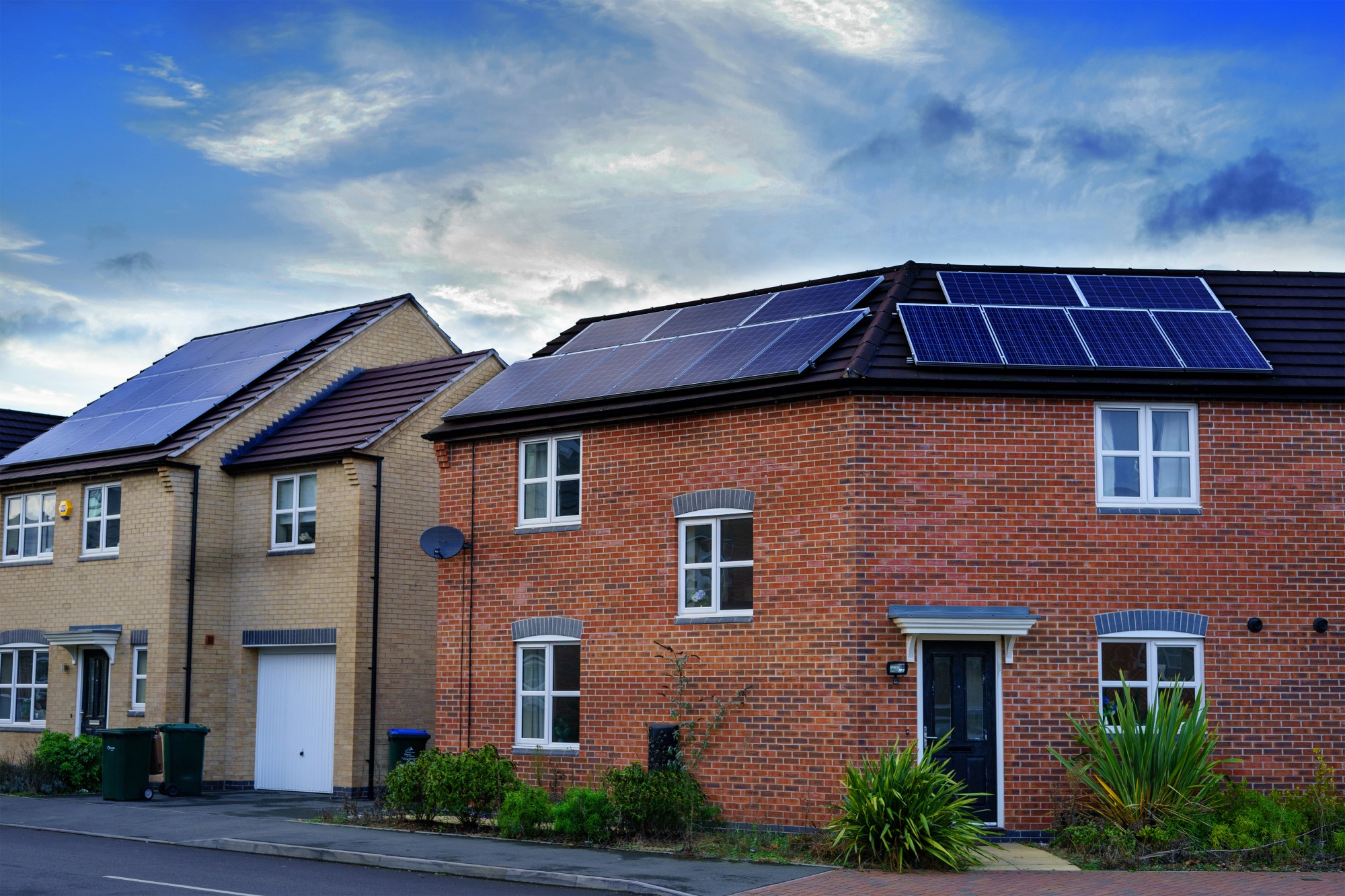
Beginner’s Guide to Solar Panels
As energy costs rise and environmental concerns grow, more UK homeowners are looking to solar panels as a more sustainable and cost-effective energy solution. In this beginner guide, we share the basics of solar energy, how they work, their benefits and an indication of associated costs. Before deciding if solar energy is for you and your home it’s good to get to grips with the fundamentals. Let’s dive in.
Solar panel basics
Solar panels, also known as photovoltaic (PV) panels, convert sunlight into electricity. They are made of multiple solar cells which are in turn made from semiconductor materials, typically silicon. When sunlight hits these cells, it stimulates the electrons, creating an electric current. This process is known as the photovoltaic effect.
How solar panels work
Solar panels capture sunlight and convert it into direct current (DC) electricity. This DC electricity is passed through an inverter, which converts it into alternating current (AC) electricity—the type used in most homes. The AC electricity can then be used to power your home, stored in batteries for later use, or fed back into the grid.
Types of solar panels
There are several types of solar panels available in use in the UK.
The first-generation solar panels, that have been around since the beginning of solar are:
- Monocrystalline Solar Panels – these are made from a single continuous crystal structure; they are considered highly efficient, and space-efficient but can be more expensive.
- Polycrystalline Solar Panels – are made from multiple crystal structures and can be less efficient but are more affordable.
Second-generation solar panels are thin-film solar panels. They are lighter and as such more flexible and easier to install.
Benefits of solar energy
If you’re a homeowner considering solar energy here are some benefits:
- Over time the savings you make from your solar panels can offset the initial cost of installing them.
- Solar energy is a clean, renewable resource that can help reduce your carbon footprint by reducing your dependence on fossil fuels.
- Producing your own electricity can protect you from rising energy costs and supply disruptions.
- Homes with solar panels can increase the value of your property. In some cases it can be a good selling point as energy efficient homes – homes with a good EPC rating – are more and more popular with home buyers.
Cost of solar panels
Like any home improvement in a property, the cost of installation will have many variables, such as:
- the size of the system
- the type of panels
- installation costs
On average, a typical residential solar panel system in the UK, including installation can come in at around £9,000 to £10,000. However, this is a guide only and you should always do your research and get quotes from several suppliers. The government Green Deal: energy efficiency for your home offers incentives and financing options that could help reduce these costs.
Installing solar panels
Before installing them, you’ll need to assess the suitability of your home:
The condition of your roof
Your roof needs to be in good repair to support the weight of the panels.
How much sunlight exposure is there?
Solar panels work best on roofs with exposure to maximum sunlight, so if your property is south-facing with minimal shade this is a positive.
What are your energy needs?
To determine your energy needs you’ll need to determine how much energy you need to run your home – this will then be used to size the most suitable system for your property.
How efficient are solar panels?
The efficiency of a solar panel system is based on the amount of sunlight it can convert into usable electricity.
It’s reported that the most efficient ones are the monocrystalline panels, followed by polycrystalline and in third place the thin-film panels. In short, the panels that generate the most electricity in the smallest space are the most efficient, however, they may come at a higher cost.
Solar panel maintenance
Maintenance is important to ensure the long-term efficiency and durability:
If you can get to your panels periodic cleaning with water and a soft brush will remove the dust, dirt, and debris that can reduce the efficiency of your panels.
Regularly check for any signs of damage – cracks or loose connections should be addressed promptly.
Book your professional annual inspections to ensure everything is in optimal condition.
Government incentives
The government’s Smart Export Guarantee (SEG) pays homeowners for any excess electricity they export to the grid. You need to meet certain eligibility requirements but it’s worth checking out.
In addition, some local councils offer grants or loans to help cover the cost of installation so it’s always worth checking locally if this is available to you.
Maximising your energy efficiency
Solar panels are a great addition to energy saving home improvements. Combined with other energy efficient measures such as using energy-efficient appliances, LED lighting, and smart home systems it can help maximise your energy savings.
To stay up-to-date with the latest energy saving tips and tricks, consider signing up for our newsletter. It’s your key to keeping your property in excellent condition and saving both time and money in the long term. Don’t miss out! Sign up today to receive valuable advice directly to your inbox.
Last Updated: November 1st, 2024







